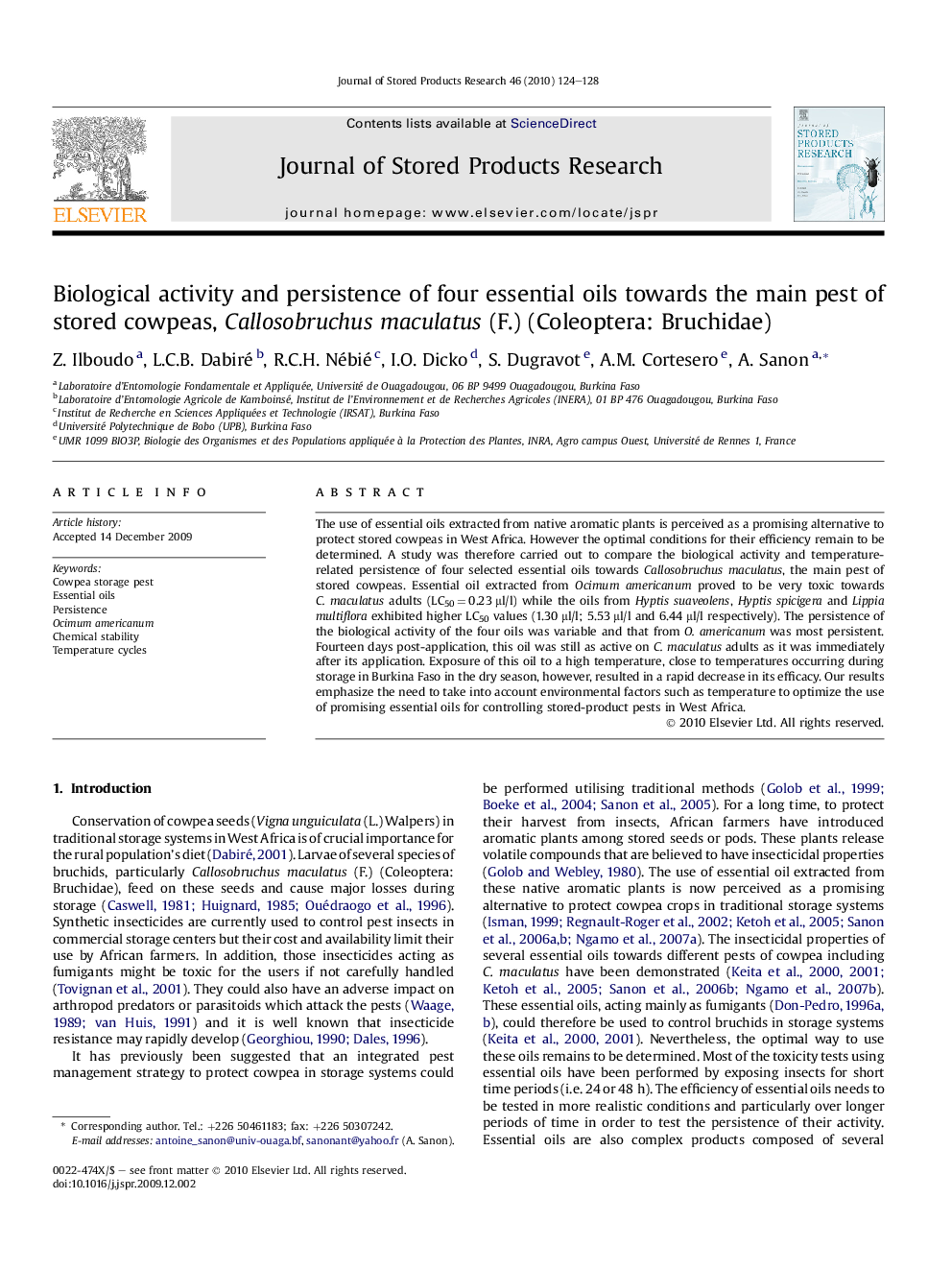| Article ID | Journal | Published Year | Pages | File Type |
|---|---|---|---|---|
| 4517317 | Journal of Stored Products Research | 2010 | 5 Pages |
The use of essential oils extracted from native aromatic plants is perceived as a promising alternative to protect stored cowpeas in West Africa. However the optimal conditions for their efficiency remain to be determined. A study was therefore carried out to compare the biological activity and temperature-related persistence of four selected essential oils towards Callosobruchus maculatus, the main pest of stored cowpeas. Essential oil extracted from Ocimum americanum proved to be very toxic towards C. maculatus adults (LC50 = 0.23 μl/l) while the oils from Hyptis suaveolens, Hyptis spicigera and Lippia multiflora exhibited higher LC50 values (1.30 μl/l; 5.53 μl/l and 6.44 μl/l respectively). The persistence of the biological activity of the four oils was variable and that from O. americanum was most persistent. Fourteen days post-application, this oil was still as active on C. maculatus adults as it was immediately after its application. Exposure of this oil to a high temperature, close to temperatures occurring during storage in Burkina Faso in the dry season, however, resulted in a rapid decrease in its efficacy. Our results emphasize the need to take into account environmental factors such as temperature to optimize the use of promising essential oils for controlling stored-product pests in West Africa.
